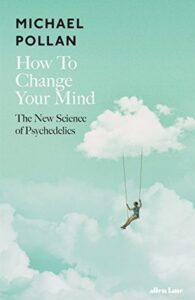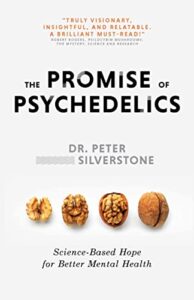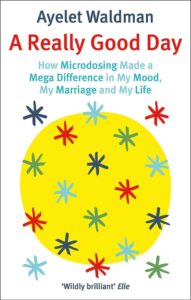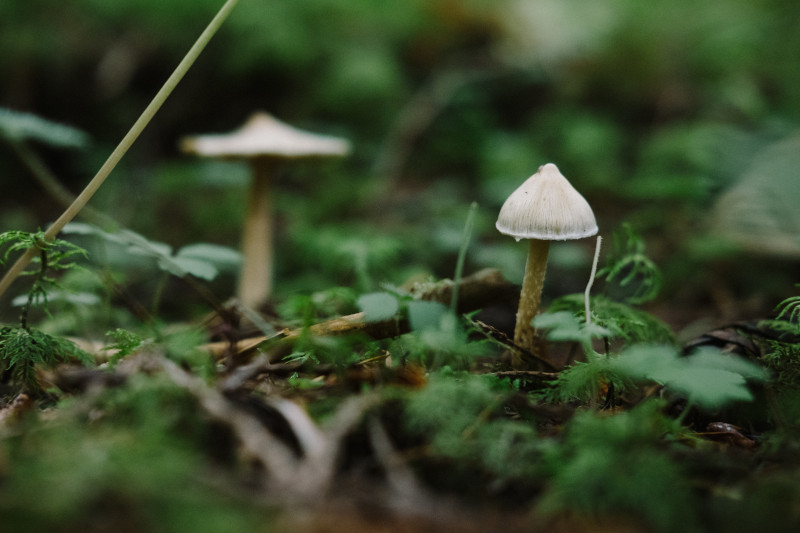
Things to do on Shrooms
Magic mushrooms are very appealing when hearing about all the blissful and life-changing experiences they have provided for so many individuals. Some people report that
The best books on microdosing may not be what you think. Psychedelic substances have been ostracized from society for many decades. They get a bad rap. Criminalizing them in the 1960s and 70s certainly didn’t help. And it definitely stunted research. But as governments worldwide come to their senses, the legality of psychedelics is changing. And studies are well underway. Researchers are discovering all kinds of therapeutic potential with psychedelics.
And the benefits of microdosing are plenty: it can fight anxiety and depression, help improve focus and creativity, and reduces brain fog. The best books on microdosing explain how it actually grows your brain. I mean literally. Your brain grows!
So here’s our list of the best books on microdosing to get you started.
Okay, okay, so our #5 best book on microdosing isn’t about microdosing. But you can’t go wrong with a classic.
If there’s any book to scare you off psychedelics, this is it.
But it can also turn you onto psychedelics. This book is a historical piece, for sure, and a reminder of what psychedelicsare.
These substances are hallucinogenic, transforming your entire consciousness. Altering your sense of taste, smell, and touch. The world looks and sounds different. In Doors, Huxley takes mescaline. Mescaline is a hallucinogen derived from the Peyote cactus. He does not microdose in this book. Huxley takes enough for a “trip.”

Obviously, when it comes to microdosing psychedelics, you’ll want to take much less than he did. And you don’t have to rely on mescaline. You can also try out LSD, a fungus found on grain. There’s psilocybin, also known as “magic” mushrooms. If you’ve ever seen or heard an episode of the Joe Rogan podcast, you know about DMT. DMT is interesting because it’s a substance appearing naturally in many plants and animals, including, possibly, people.
Huxley takes 4/10 of a gram in The Doors to Perception. Microdosing would mean less than a gram. And it means no trip. Not even a high. So what’s the point, you might ask? That brings us to our next best book on microdosing.
These substances are hallucinogenic, transforming your entire consciousness. Altering your sense of taste, smell, and touch. The world looks and sounds different. In Doors, Huxley takes mescaline. Mescaline is a hallucinogen derived from the Peyote cactus. He does not microdose in this book. Huxley takes enough for a “trip.”
Our #4 best book on microdosing is a New York Times best-seller.
Author Michael Pollan hits it out of the park with his sixth book.
Full of history, interviews, and anecdotal experiences, Pollan weaves a narrative that keeps you turning the pages. While it’s not technically about microdosing, Pollan covers it briefly.
This book is about how recent psychedelic research has changed our understanding of mental health and medicine.
Even work relationships can be positively improved.
Pollan mentions microdosing with a bit about a Bay Area tech company that institutes “microdosing Fridays.”

Our #3 best book on microdosing is a result of collecting reports from over 1500 microdosing individuals. Fadiman finds microdosing to increase people’s motivation, productivity, and focus. It’s like a procrastination cure!
Does it go without saying that the people Fadiman collected reports from weren’t junkies? Of course, it does. We know they were students and academics, artists and creatives,business people and entrepreneurs. They’re ordinary people like you and me. People who benefit from the stress release microdosing provides.
In this book, psychologist James Fadiman is your guide to psychedelics. It’s one of those books you wish existed sixty years ago. While it doesn’t exclusively cover microdosing, it does spend a considerable amount of time on it. Enough to make it our number #3 best book on microdosing.

Our #2 best book on microdosing is the expert opinion you’re looking for. Dr. Peter Silverstone, MD, knows that well-being is crucial.
But it’s also easier said than done. Not everyone gets a whole night’s rest. A lot of people don’t eat right or get enough exercise. Well-being can sometimes take a backseat to life’s other priorities.
In that case, you might be looking at microdosing like a supplement you take with a meal.

That’s where Dr. Silverstone’s book comes in. A comprehensive look at microdosing for mental health and written in easy-to-understand language. Dr. Silverstone’s book is also autobiographical. He weaves his life experiences and personal anecdotes. His experiences at Zylorion Health and as a professor in the Department of Psychiatry at the University of Alberta, Canada, can comfort readers. This is a guy who knows what he’s talking about.
Like, for example, what microdosing can do for the brain. When damaged, the brain undergoes a process of repair called neuroplasticity. Studies suggest that microdosing can fire up this repair process. Alongside other remedies, like yoga and meditation, the possibility for greater mental health has never been so close.
The author of over 140 peer-reviewed publications (cited more than 3,500 times) – if you’re looking for an expert opinion on microdosing for mental health, this is your guy.
Our #1 best book on microdosing is part memoir, part history of the drug war, and part self-help book.
A Really Good Day is an honest and delightful book about microdosing.
And it is the only book in this list (aside from Huxley’s) that comes at microdosing in a personal way.
When I say it’s an honest book, I mean it.

Ayelet Waldman is at the end of her rope. On the surface, she’s a successful public federal defender. But below, the loving wife and mother suffers from a deep depression. After discovering James Fadiman (see our #3 best book on microdosing), she decides to try microdosing.
She finds it surprisingly easy to find LSD in her Berkley, California town. A friend-of-a-friend delivers it to her mailbox. Along with a note that always leaves me teary-eyed: “Our lives may be no more than dewdrops on a summer morning. But surely, it is better that we sparkle while we are here.”
So Waldman starts microdosing. And after a lifetime of ineffective treatment, she feels cured. The results change her life. No longer a hostage to her moods, she transforms herself. Her confidence grows. And so does her brain. Quite literally. Microdosing creates new neuron pathways in her brain. With these new pathways, Waldman makes new connections and overcomes her depression.
A positive microdosing experience doesn’t involve “tripping” or feeling stoned. But you can gain the benefits of psychedelics through microdosing. And our best books on microdosing are here to help guide you like a lighthouse. May your microdosing journey be pleasant and fruitful!

Magic mushrooms are very appealing when hearing about all the blissful and life-changing experiences they have provided for so many individuals. Some people report that

Psilocybin has gone from a mind-bending 1960s drug that was swept under the rug for decades, to its place today as a respected and promising

Meditation and microdosing: an iconic duo. Individually, both of these practices are like hygiene for the brain. Together, they hold even more powerful! Although they
Microdosing and Silicon Valley? Those unfamiliar with microdosing may find that the term conjures up images of mushroom-munching hippies with long hair. However, microdosing has

If you’re anything like me, you know the struggle of daily ‘‘brain fog’’. It’s like that fog has just rolled in and suddenly you’re

If you’re curious about natural remedies, look no further! Let me introduce you to: medicinal mushrooms. These fascinating organisms have been used for
GET 10% DISCOUNT WITH NOTIFIED ABOUT THE LATEST NEWS AND UPDATES. NO SPAM, WE PROMISE!
FREE Tracked shipping on orders over €250 to EU countries.
Monday- Friday 8.30am- 5pm (CET)
A range of options available
Guaranteed delivery or your money back